Bass CDs
New Album: Mulberry Street Symphony, With Bassist Scott Colley
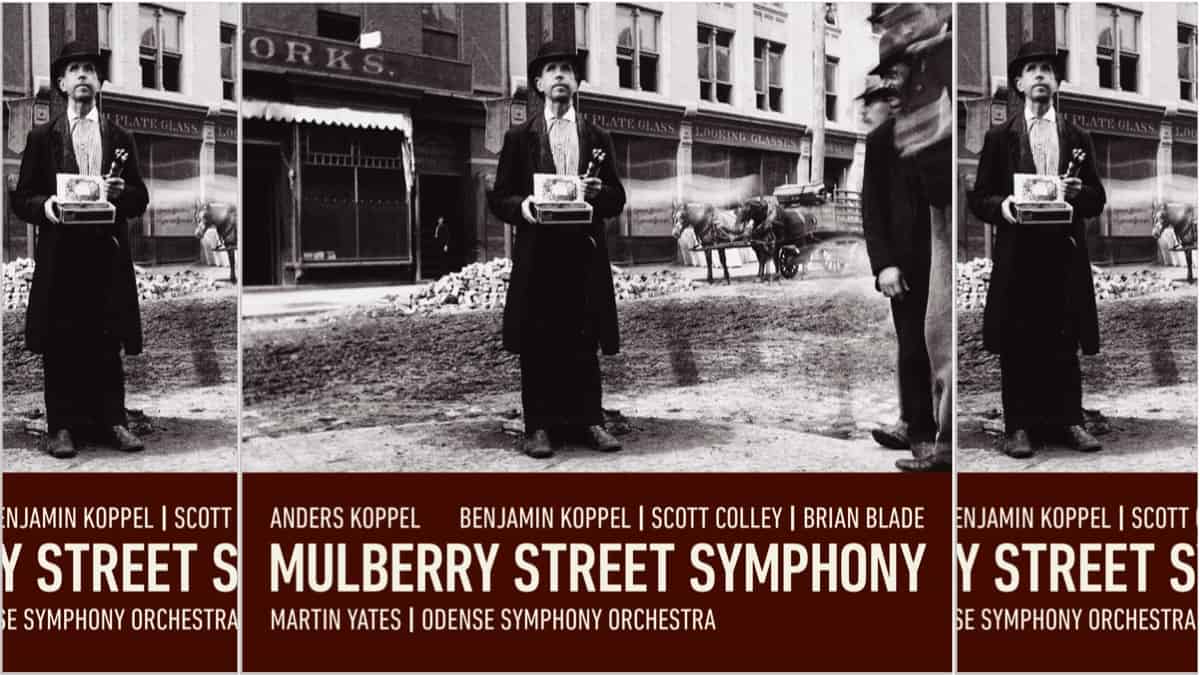
Mulberry Street Symphony…
Prolific Danish composer Anders Koppel, whose distinguished career includes music for theatre, film, ballet and over 150 scores for various classical ensembles, pays homage to his fellow countryman, the famed photographer and social reformer Jacob Riis, on Mulberry Street Symphony. Riis, who emigrated from his native Denmark to America in 1870, exposed the poor living conditions of impoverished immigrants in his groundbreaking photojournalism book, “How the Other Half Lives.” Inspired by Riis’ compelling photographs, Koppel created Mulberry Street Symphony, an epic work in seven movements, each one based on a different Riis photo depicting tenement life in New York City during the 1880s. “The work is a eulogy to the life and dreams of these people,” said the composer.
Koppel’s symphony for jazz trio and orchestra (the Odense Symphony Orchestra conducted by Martin Yates) showcases the composer’s son, alto saxophonist Benjamin Koppel, as the main voice through all seven movements. The work is underscored by the world-class rhythm tandem of bassist Scott Colley, whose sideman credits include work with Herbie Hancock, Jim Hall, Pat Metheny, Carmen McRae and Andrew Hill, and drumming great Brian Blade, a longtime member of the Wayne Shorter Quintet who has also toured and recorded with Bill Frisell, Herbie Hancock, Joni Mitchell and Bob Dylan. As Koppel noted of the flexible trio of Colley, Blade and his son Benjamin, “With their profound understanding of the music and their capacity for catching the moment, they melt effortlessly into the symphony orchestra and move the work to where the border between notation and improvising disappears.”
In capturing the essence of Riis’ striking photos in music, Koppel deftly integrates symphonic elements with jazz improvisation while also conjuring up a wide palette of colors and moods along the way. “The whole symphonic score is completely developed and notated, but I didn’t write that much for the trio,” he explained. “Great musicians have fantastic ears. And I wanted to take advantage of that by giving Brian, Scott and Benjamin the freedom that I knew that they could fill. And they interpreted my vision completely.”
Each of the seven movements of Mulberry Street Symphony is a dramatic piece that tells a story in sound. The cinematic opening track, “Stranded in the City,” conveys the sights and sensations of an immigrant’s arrival into New York City during the latter part of the 19th century. Benjamin Koppel commented on his father’s gift for capturing the extra-musical in his scores. “The way that he uses his music to describe feelings and stories and emotions and even actions is more like an abstract painter would paint a feeling. And because we know him so well, we know his intentions and we can hear his stories and we can relate to it all the way. And so that made this collaboration very easy and open for us to just go into exploring mode.”
As the expansive “Stranded in the City” develops, Benjamin’s alto sax alternately darts and soars to convey its shifting moods, from pensive apprehension to giddy optimism. Anders described the newly-arrived immigrant in Riis’ photo this way: “He’s a 19-year old boy in his best, maybe only suit, stranded on a staircase, in the corner, outside closed doors, hoping for food and lodging. Something happened to his eye. The pulsating sounds of the big city resound from the streets. The wondering, curious and shy look of his eye tell a story of arrival, isolation and will to survive.”
Equally cinematic, while also deftly straddling the through-composed and improvisational divide, are the gentle lullaby “Minding the Baby” and the frantic 20-minute “Tommy the Shoeshine Boy,” the latter featuring facile, Bird-like flights by Benjamin throughout, along with some ecstatic blowing over the more turbulent sections. The poignant and moody tone poem “Blind Man” is meant to portray the lonely figure in Riis’ compelling photo. As Koppel noted: “Always standing on the same spot, leaning slightly agains the lamppost at the corner, peddling his rubber-tipped pencils. The darkness in his gaze, the dignity of his posture.” The composer added, “I tried to convey a special character, a man who is very much himself, apart from society, in a sense. But then again, the music took on its own way.”
A dramatic “The Last Mulberry” is trudging, blues-tinged requiem for the last mulberry tree in Little Italy. As Koppel wrote: “A blues for the tree and for the time closing in. Still blooming every spring, its leaves became more and more sparse. In the end it was cut down.” The conversational playing between Benjamin Koppel, Scott Colley and Brian Blade enlivens this track as the orchestra swirls around the interactive trio.
The unabashedly swinging “Bandit’s Roost” is perhaps the most dynamic and freewheeling track of the set. With Colley and Blade setting the kinetic pulse, Benjamin wails with rare abandon and authority over the top of this up-tempo burner. Koppel described the Riis photo that inspired the invigorating music: “Young Italian mobsters posing underneath their mothers’ laundry hanging out to dry. Fragments of a popular song echo between the walls while plans are being made and energies collected, ready to burst.”
Mulberry Street Symphony closes on a comforting note with the hopeful hymn, “The New House,” based on a 1894 Riis photo of a new home for orphans and homeless children that he helped build on a green hill in the countryside. As Koppel noted: “The simplicity of the hymn reflects the hope and knowledge that lies behind this photo: things will change – and it matters what you do.”
In the process of putting the music together for Mulberry Street Symphony, Koppel said, “I was inspired by
the Riis photos but my aim was not to make a sort of programmatic piece. The music has its freedom always, as it should have. The music often has its own will. So my point of departure was the photographs, but then the music sometimes sort of took over.”
The significance of Koppel, born into a musical family in Copenhagen in 1947, now honoring the legacy of the Danish-American immigrant Riis at a time of increasing debate over the growing wave of refugees and immigrants around the world was not lost on the Danish composer. “In my family’s history there are these two immigrant stories: Firstly, my grandparents coming to Denmark in the beginning of the 20th century as Jewish immigrants from Poland. At that time, Poland was occupied by Russia and there were always pogroms on the Jews, so they fled to Denmark and made a living there. And secondly, my parents and my sisters were refugees from Hitler during World War II. When Germany occupied Denmark in 1940, they fled to Sweden. So the idea of being an immigrant has always been very present in my thinking. And these days, in this time of history, the whole issue of refugees that have no home and immigrants desperately trying to come into other countries is ever present. It’s a mess and it’s a tragedy. So that was another line of thinking in this new work.”
The son of classical composer and pianist Herman D. Koppel, Anders Koppel was a child singer in the Copenhagen Boys Choir and studied piano with his sister and father from the age of five. He also played the recorder and later clarinet and made several television and concert appearances as a youngster, including the first performance of his father’s Variations in 1962 at age 15. He took up the Hammond organ in 1966 and the following year founded with his brother Thomas the legendary Danish rock group The Savage Rose. The band toured Europe extensively from 1967 to 1974 and even made a Stateside appearance in 1969 at the Newport Jazz Festival while also recording eight albums in studios located in London, New York, Los Angeles, Rome and Copenhagen. Koppel left the group in 1974 to make his first solo recordings, Valmuevejen with singer Otto Brandenburg, and Aftenlandet, a progressive instrumental album. In 1976 he cofounded with bassoonist-clarinetist Peter Bastian and percussionist Flemming Quist Møller the trendsetting world music trio Bazaar. The band played together for 37 years until 2013.
In the ‘80s and ‘90s, Koppel wrote music for 50 plays, eight modern large-scale ballets and more than 100 movies. Since 1997, he has devoted himself to composing for classical ensembles and has completed 150 scores to date — solo pieces, chamber music, orchestral and vocal works, an opera and 33 concertos for solo instrument with orchestra. His saxophonist son Benjamin has been a featured player in six of his concertos. Father and son have also been playing together in recent years in a highly interactive quartet setting with Colley and Blade.
In the process of composing Mulberry Street Symphony, Koppel said, “I thought about the relationships between America and my country, and all the fantastic music that has been brought to us from America that has in many ways changed our lives and inspired us endlessy. And then Jacob Riis ran through my mind because I knew his story. I had just seen an exhibition in Copenhagen of his photographs, which impressed me very deeply. And so there was another link between Denmark and America.”
As a fully-realized work seeking to bridge the worlds of classical and modern jazz, Anders Koppel’s Mulberry Street Symphony is in the lineage of such successful orchestral works as Duke Ellington’s Black, Brown & Beige (1943), Miles Davis-Gil Evans’ Sketches of Spain (1960), Stan Getz’s Focus (1961) and the Claus Ogerman-Michael Brecker collaboration on Cityscape (1982). And like many of his past works, it brings together Koppel’s love of symphonic music and jazz improvisation in organic fashion. “I think that has been my language ever since I started writing scores,” he said. “I believe that the musical language that you have as a composer is a result of the life you have lived and the music you have studied and loved. My music has traces of all the music that I have been occupied with in my fairly long life —
classical, jazz, Cuban music, Italian folk songs, Turkish music. There’s so much fantastic music that influenced me during my life and all of that is in the music too. It’s all combined in my language, I believe.”
Added Benjamin Koppel, “I think all his music is very much his own music. He has his totally own voice and his own direction, which is this borderland between classical and jazz or rhythmical music. And because he was a performer himself, he has always been able to write music that all the members of the symphony orchestra love to play. He was a clarinet wunderkind when he was a child and performed of a lot of my grandfather’s clarinet pieces when he was 10, 12, 14 years old. So he knows what it’s like to be a wind player, but he’s also an extraordinary Hammond organ player and pianist as well. So he knows the instruments and he knows the importance of having fun while playing but also being challenged by the music. So he makes sure that every voice in the symphony orchestra is swinging and melodic and important. That is very much a part of his sound and his personal approach. And I think that’s a line going through all this orchestral works.”
Mulberry Street Symphony is scheduled to be released on February 18, 2022 via Unit Records.
Bass CDs
New Campaign: Alberto Rigoni, Nemesis Call – Queens Of Strings
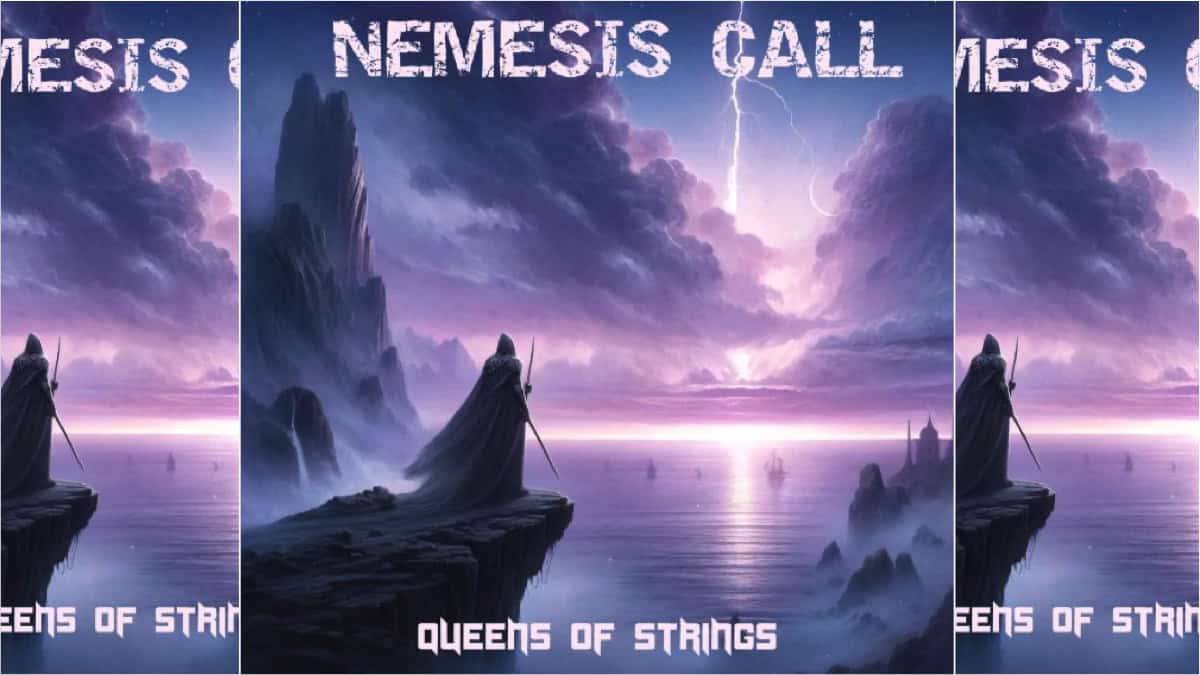
Italian bass master and composer ALBERTO RIGONI is thrilled to announce his brand new project “Nemesis Call – Queens Of Strings”.
Nemesis Call – Queens Of Strings features a super talented drummer from Japan (TBA) and tons of female guitarists such as SAKI, Giusy Busetto, Alexandra Zerner (TBC) and many many others (TBA). Furthermore, Alberto has also launched a Fundraising Campaign for the project. 20% of the income will be donated to Lega del Filo d’Oro legadelfilodoro.it/it, an Italian association that helps deaf and blind children!
Alberto shares:
“Hello friends and music lovers! I’m Alberto Rigoni, an Italian composer and.. a BASS GUY! Between 2008 and 2024 I released 13 solo albums, spanning from progressive, rock, ambient to funky and experimental music, which also features contributions from musicians such as keyboard wizard Jordan Rudess (Dream Theater) drummer Gavin Harrison (Porcupine Tree) and Marco Minnemann (the Aristocrats), keyboardist Kevin Moore (ex Dream Theater), singer John Jeff Soto (ex Goran Edman (ex Y. Malmsteen), bassists Nathan East, Stu Hamm (Joe Satriani), Nik West (ex Prince) and many others. I’m also bass player for BAD As, Sunset Groove Society, Kim Bingham, The Italians bands and co-producer of Mistheria’s Vivaldi Metal Project.”
Alberto on the new project Nemesis Call:
“Even if my latest album “Unexpected Lullabies”, dedicated to my newborn Vittoria Parini Rigoni, will be released on June 4th, 2024, when Vittoria came to life I felt the need to compose new music (yes, I really can’t stop!!!!!). This time will be quite challenging because I’m willing to release an instrumental ambient/prog/rock/metal album, that will feature a talented and young drummer (TBA) and tons of female guitarists (that’s why I will call the album “Queens of the Strings”) such as Alexandra Zerner, YOKA and many others (TBA/TBC)). It won’t be easy to manage all such great musicians but I will make it!! Are you ready to face a new prog experience? The album will be released in Digipack CD and in high-quality digital format approximately at the beginning of 2025.”
The Fundraising Campaign:
As an independent artist, Alberto is looking for supporters who can help him reach the budget for the production (recordings, mix, mastering, artwork etc.) of this new album and has started this fundraising campaign that will end successfully on October 15th, 2024.
Get further information about Alberto Rigoni’s new project Nemesis Call Fundraising campaign at albertorigoni.net/nemesiscal
Bass CDs
New Album: Jake Leckie, Planter of Seeds
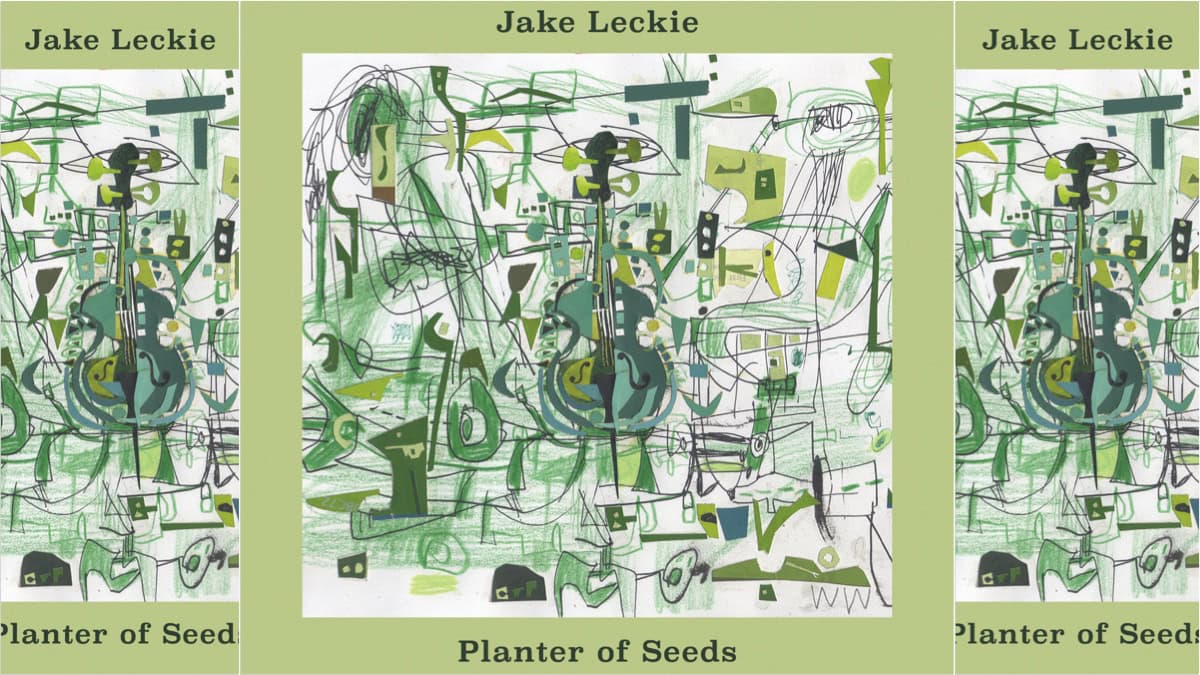
Bassist Jake Leckie and The Guide Trio Unveil New Album Planter of Seeds,
to be released on June 7, 2024
Planter of Seeds is bassist/composer Jake Leckie’s third release as a bandleader and explores what beauty can come tomorrow from the seeds we plant today.
What are we putting in the ground? What are we building? What is the village we want to bring our children up in? At the core of the ensemble is The Guide Trio, his working band with guitarist Nadav Peled and drummer Beth Goodfellow, who played on Leckie’s second album, The Guide, a rootsy funky acoustic analog folk-jazz recording released on Ropeadope records in 2022. For Planter of Seeds, the ensemble is augmented by Cathlene Pineda (piano), Randal Fisher (tenor saxophone), and Darius Christian (trombone), who infuse freedom and soul into the already tightly established ensemble.
Eight original compositions were pristinely recorded live off the floor of Studio 3 at East West Studios in Hollywood CA, and mastered by A.T. Michael MacDonald. The cover art is by internationally acclaimed visual artist Wayne White. Whereas his previous work has been compared to Charles Mingus, and Keith Jarrett’s American Quartet with Charlie Haden, Leckie’s new collection sits comfortably between the funky odd time signatures of the Dave Holland Quintet and the modern folk-jazz of the Brian Blade Fellowship Band with a respectful nod towards the late 1950s classic recordings of Ahmad Jamal and Miles Davis.
The title track, “Planter of Seeds,” is dedicated to a close family friend, who was originally from Trinidad, and whenever she visited family or friends at their homes, without anyone knowing, she would plant seeds she kept in her pocket in their gardens, so the next season beautiful flowers would pop up. It was a small altruistic anonymous act of kindness that brought just a little more beauty into the world. The rhythm is a tribute to Ahmad Jamal, who we also lost around the same time, and whose theme song Poinciana is about a tree from the Caribbean.
“Big Sur Jade” was written on a trip Leckie took with his wife to Big Sur, CA, and is a celebration of his family and community. This swinging 5/4 blues opens with an unaccompanied bass solo, and gives an opportunity for each of the musicians to share their improvisational voices. “Clear Skies” is a cathartic up-tempo release of collective creative energies in fiery improvisational freedom. “The Aquatic Uncle” features Randal Fisher’s saxophone and is named after an Italo Calvino short story which contemplates if one can embrace the new ways while being in tune with tradition. In ancient times, before a rudder, the Starboard side of the ship was where it was steered from with a steering oar. In this meditative quartet performance, the bass is like the steering oar of the ensemble: it can control the direction of the music, and when things begin to unravel or become unhinged, a simple pedal note keeps everything grounded.
The two trio tunes on the album are proof that the establishment of his consistent working band The Guide Trio has been a fruitful collaboration. “Santa Teresa”, a bouncy samba-blues in ? time, embodies the winding streets and stairways of the bohemian neighborhood in Rio de Janeiro it is named for. The swampy drum feel on “String Song” pays homage to Levon Helm of The Band, a group where you can’t always tell who wrote the song or who the bandleader is, proving that the sum is greater than the individual parts. Early jazz reflected egalitarianism in collective improvisation, and this group dynamic is an expression of that kind of inclusivity and democracy.
“The Daughters of the Moon” rounds out the album, putting book ends on the naturalist themes. This composition is named after magical surrealist Italo Calvino’s short story about consumerism, in which a mythical modern society that values only buying shiny new things throws away the moon like it is a piece of garbage and the daughters of the moon save it and resurrect it. It’s an eco-feminist take on how women are going to save the world. Pineda’s piano outro is a hauntingly beautiful lunar voyage, blinding us with love. Leckie dedicates this song to his daughter: “My hope is that my daughter becomes a daughter of the moon, helping to make the world a more beautiful and verdant place to live.”
Bass CDs
Debut Album: Nate Sabat, Bass Fiddler
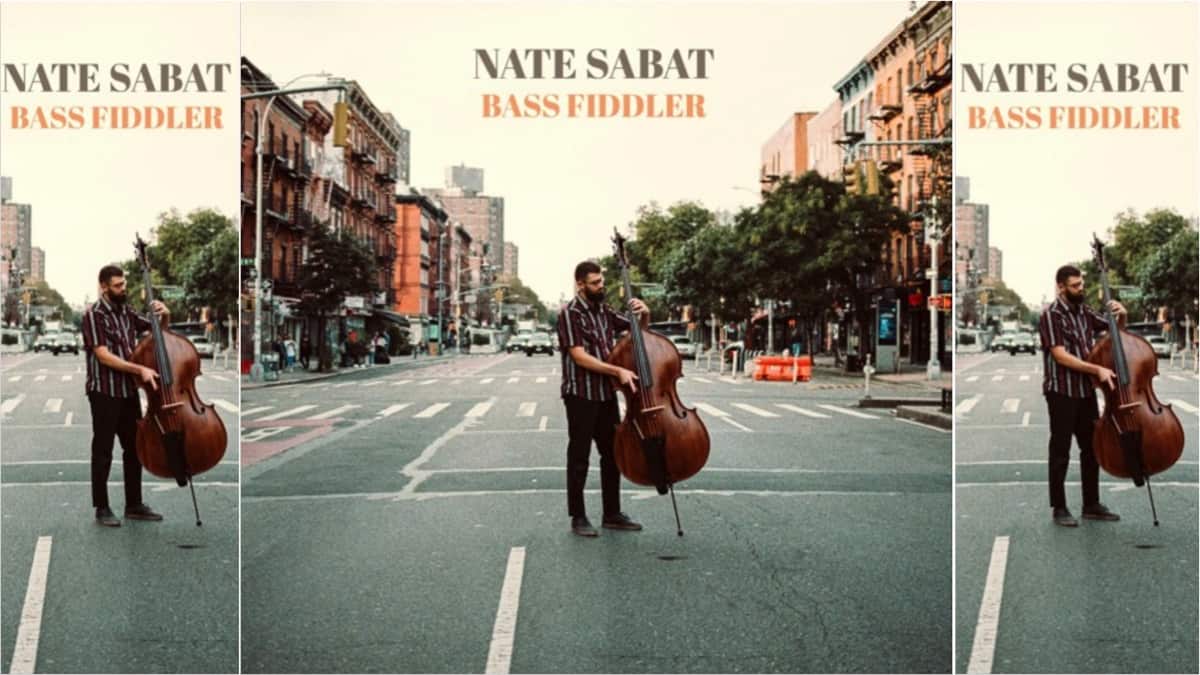
In a thrilling solo debut, bassist Nate Sabat combines instrumental virtuosity with a songwriter’s heart on Bass Fiddler…
The upright bass and the human voice. Two essential musical instruments, one with roots in 15th century Europe, the other as old as humanity itself.
On Bass Fiddler (Adhyâropa Records ÂR00057), the debut album from Brooklyn-based singer-songwriter and bass virtuoso Nate Sabat, the scope is narrowed down a bit. Drawing from the rich and thriving tradition of American folk music, Sabat delivers expertly crafted original songs and choice covers with the upright bass as his lone tool for accompaniment.
The concept was born a decade ago when Sabat began studying with the legendary old-time fiddler Bruce Molsky at Berklee College of Music. “One of Bruce’s specialties is singing and playing fiddle at the same time. The second I heard it I was hooked,” recalls Sabat. “I thought, how can I do this on the bass?” From there, he was off to the races, arranging original and traditional material with Molsky as his guide. “Fast forward to 2020, and I — like so many other musicians — was thinking of how to best spend my time. I sat down with the goal of writing some new songs and arranging some new covers, and an entire record came out.” When the time came to make the album, it was evident that Molsky would be the ideal producer. Sabat asked him if he’d be interested, and luckily he was. “What an inspiration to work with an artist like Nate,” says Molsky. “Right at the beginning, he came to this project with a strong, personal and unique vision. Plus he had the guts to try for a complete and compelling cycle of music with nothing but a bass and a voice. You’ll hear right away that it’s engaging, sometimes serious, sometimes fun, and beautifully thought out from top to bottom.”
While this record is, at its core, a folk music album, Sabat uses the term broadly. Some tracks lean more rock (‘In the Shade’), some more pop (‘White Marble’, ‘Rabid Thoughts’), some more jazz (‘Fade Away’), but the setting ties them all together. “There’s something inherently folksy about a musician singing songs with their instrument, no matter the influences behind the compositions themselves,” Sabat notes. To be sure, there are plenty of folk songs (‘Louise’ ‘Sometimes’, ‘Eli’) and fiddling (‘Year of the Ox’) to be had here — the folk music fan won’t go hungry. There’s a healthy dose of bluegrass too (‘Orphan Annie’, ‘Lonesome Night’), clean and simple, the way Mr. Bill Monroe intended.
All in all, this album shines a light on an instrument that often goes overlooked in the folk music world, enveloping the listener in its myriad sounds, textures, and colors. “There’s nothing I love more than playing the upright bass,” exclaims Sabat. “My hope is that listeners take the time to sit with this album front to back — I want them to take in the full scope of the work. I have a feeling they’ll hear something they haven’t heard before.”
Available online at natesabat.bandcamp.com/album/walking-away
Bass CDs
New Album: Avery Sharpe, I Am My Neighbors Keeper
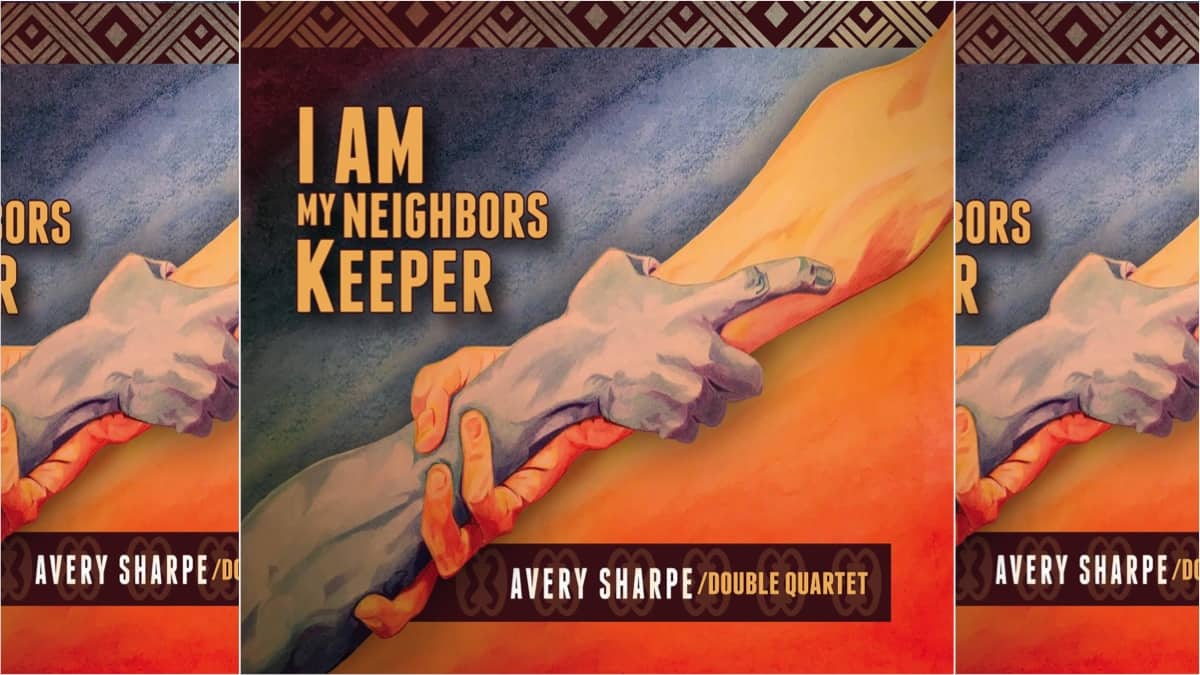
Avery Sharpe and his Double Quartet to release, I Am My Neighbors Keeper
A new recording will be released on JKNM Records by internationally renowned bassist/composer Avery Sharpe, “I Am My Neighbors Keeper” is scheduled for release in June 2024.
Sharpe has composed a new work that highlights our commitment to one another. Avery initiated the project as a response to the political and racial division that has grown over the past seven years in the country. “The U.S political climate has drastically changed in the past 40-plus years, especially during the last seven of those years. In this age of greed, which Sharpe refers to as “IGM,” I Got Mine, basic human compassion has been eroded. Racial, economic and social strides are being turned back.
“We have food insecurity, the unhoused, pandemics, school shootings, domestic violence, and an opioid problem, just to name some. There is a need to remind people that each of us is here on this planet for a very short period of time. It doesn’t matter if one has a religious approach or a secular approach, it all comes down to concern and compassion for each other. Through these compositions and recordings, Avery’s mission as an artist is to remind us that we all are interconnected and that ‘We Are Our Neighbor’s Keeper.’ When we help to uplift one, we uplift everyone,” Sharpe said.
Each movement in the piece describes the values we should strive for to help one another for this multi-media (video slide show during performance) and multi-discipline performance.
Many of Sharpe’s projects and recordings have been about “standing on the shoulders of ancestors, heroes and sheroes.” Among his recordings and projects, include “Running Man” (celebrating the athlete Jesse Owens), “Ain’t I A Woman” (about Sojourner Truth), and his most recent project “400: An African American Musical Portrait” (marking the 400 years from 1619 to 2019).
Avery Sharpe has recorded and performed with many jazz greats from Dizzy Gillespie to Yusef Lateef. He had an illustrious run of 20 plus years with the legendary Jazz pianist McCoy Tyner, of which he recorded more than 25 records with Mr. Tyner and performed countless worldwide concerts.
Visit online at averysharpe.com/
Bass CDs
New Album: Killing Bees, Racing Towards Ruin

Killing Bees Racing Towards Ruin out May 10th via Tonequake Records.
There are some records where the first note grabs you and doesn’t let go. Before the first lyric is sung, Killing Bees pull you into Racing Towards Ruins via the sheer power of TONES, MAN, TONES. Brown-note bass reverberations and gut-punch kickdrum snap the listener out of daily reverie instantaneously. Together, bassist/vocalist Nic Nifoussi and drummer Ray Mehlbaum (both of Automatic 7) and producer Andrew Scheps (Mars Volta, Audioslave, Adele) have crafted a piece of art that fuses low-rock minimalism, post-hardcore aggression, and SoCal throttle rock urgency into, well, a real ass-kicker.
The bones of Killing Bees began their calcification when Nifoussi started a high school punk band called Automatic 7. They signed to BYO Records upon graduation and soon found themselves in need of a new drummer. Enter Ray Mehlbaum. Tours with Bad Religion, Social Distortion, Face 2 Face, Bouncing Souls, Suicide Machines, Unwritten Law, Youth Brigade, DOA, and others followed, as well as a deal with A&M Records. A&M got bought by Universal, the band moved to Vagrant Records, cut a new record, toured, then broke up.
“Eventually, Ray and I decided to start a two-piece band” explains Nifoussi. “I was trying out a new sound using 2 amps and an A-B switch. Overdrive through one amp and playing a lot of chords to get a guitar-like sound. After years of playing together, we were already tight and used to writing together. The songs came quickly and easily.”
Via Brett Gurewitz of Bad Religion, the band had come to know Grammy-winning producer and engineer Andrew Scheps. Though originally recommended as a producer for Automatic 7, when the band played him the Killing Bees songs, he loved the concept and the trio got to work on their self-titled debut. Following the record’s release on Guano Loco/Loose Fang Records, “we played a bunch of shows and eventually started writing the new record in our North Hollywood lockout” says Nifoussi.
Recorded once again at Scheps’ studio, drums and bass were recorded live, the only overdubs being vocals and some bass and accordion textures (Nifoussi is an accomplished accordionist). “We tracked the two together over 4 or 5 days and everything you hear was played live by talented humans, not put together after the fact. I think that live energy is what makes the record so compelling!” says Scheps. “Andrew wanted to challenge us. We came in wired towards traditional songwriting – he wasn’t interested in that” explains Mehlbaum. “He encouraged us to think about instrumental bits that would drive the tune, as opposed to the sing-along chorus of a traditional song. As a drummer, he kicked my ass. I remember him saying “we’re gonna turn the click off. I want you to go completely ‘out of time’ then come back in.” That’s some crazy shit! But I fucking loved it.”
Thematically, the record deals with the dangers of love and politics in equal measure. As Nifoussi puts it, “if there’s a takeaway, it’s to be careful with who you love… and vote into government.” So, Racing Towards Ruin. A concise, compelling listen, arresting at first blush, and deeply moving upon completion. A modern rock record (not a modern-rock record), unrelentingly heavy and sonically immaculate. And loud. Super loud.











